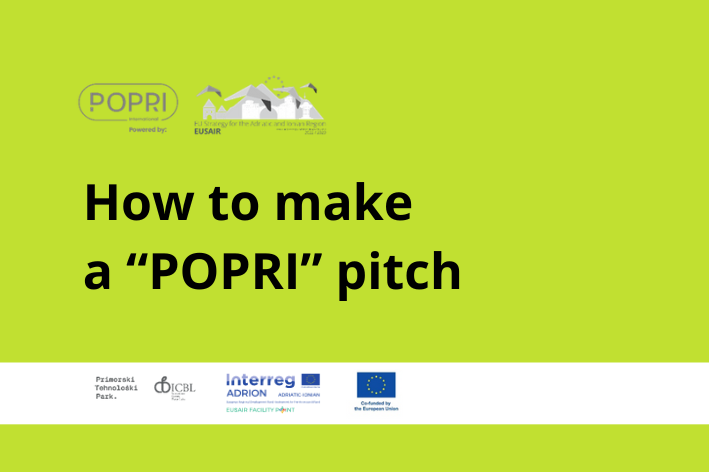The POPRI youth competition held in Sarajevo highlighted the creativity of young participants who identified pressing European issues and devised practical solutions. It also served as a powerful reminder of the potential that lies within the continent’s youth population.
One of the most remarkable aspects of the POPRI competition – held from 23 to 25 May 2023 as part of the EUSAIR Annual Forum in the capital of Bosnia and Herzegovina – was the vibrant energy generated by young minds from diverse backgrounds. The competition was divided into two categories: high school and university students. Witnessing these young individuals come together to exchange ideas and perspectives was truly inspiring.
One of the fundamental goals of the POPRI competition was to promote youth involvement in addressing various challenges faced by European countries. The ideas presented by the participants reflected a deep understanding of the issues at hand, be it on a national, regional, or local level.
In addition, the competition fostered a sense of cooperation among the participants. It provided a unique opportunity for young minds to collaborate and learn from one another. Strengthening European cooperation through platforms like POPRI not only empowers individual participants, but also cultivates a spirit of unity and collaboration.
Diverse ideas were presented during the POPRI competition, and each team brought a unique set of skills and knowledge to the table. This exchange of ideas is vital for fostering innovation, as it encourages individuals to explore alternative approaches.
One of the standout solutions presented during the competition was a project aimed at recycling used cans and transforming them into solar panels. The team behind this idea recognized the growing need for renewable energy sources and sought to address it through innovative recycling techniques. By repurposing discarded cans, they were able to create affordable and sustainable solar panels, making clean energy more accessible to communities across Europe.
Another inspiring solution revolved around sustainable food production. One team proposed a novel approach to reduce food waste and create new food sources by utilizing used citrus peels. They discovered that by extracting flour from these peels, a valuable ingredient could be obtained for baking and cooking.
This not only reduced waste but also offered an alternative to traditional flour production methods, which often contribute to environmental degradation. Additionally, another team developed a process to make yogurt from almonds, providing a plant-based alternative to dairy products and promoting sustainable agriculture practices.
These examples highlight the ingenuity of participants who identified pressing issues within Europe and developed pragmatic solutions. The competition served as a platform for these ideas to be shared and recognized on an international scale. By presenting their projects, participants gained valuable feedback and potential opportunities for collaboration and implementation.
